

npx utility:
> npx periodic-table-cli
> npx periodic-table-cli [options]
The config params are optional (see Options).
> npm install --global periodic-table-cli
> periodic-table-cli
> periodic-table-cli [options]
The config params are optional (see Options).
Note: Supports NodeJS 12+.
> pip install periodic-table-cli
> periodic-table-cli
> periodic-table-cli [options]
The config params are optional (see Options).
Note: Supports Python 3.8+.
> brew tap spirometaxas/tap
> brew install periodic-table-cli
Or to install with one line:
> brew install spirometaxas/tap/periodic-table-cli
Then run:
> periodic-table-cli
> periodic-table-cli [options]
The config params are optional (see Options).
Note: Installs the Python version. Formula here.
Use UP / DOWN / LEFT / RIGHT arrows.
Use SLASH </> to toggle the display mode forwards. Use BACKSLASH <\> to toggle the display mode in reverse.
Use UP / DOWN arrows to navigate results. Press ENTER to select. Press LEFT to exit search.
Press ESC or CTRL+C.
--help flag for more info.Note:
Use arrow keys to navigate and browse across all 118 elements. The selected element appears in gold on the Periodic Table on the left, and 22 data points for that element will display on the right. Each element's family and electron configuration will appear in gold below the Periodic Table.
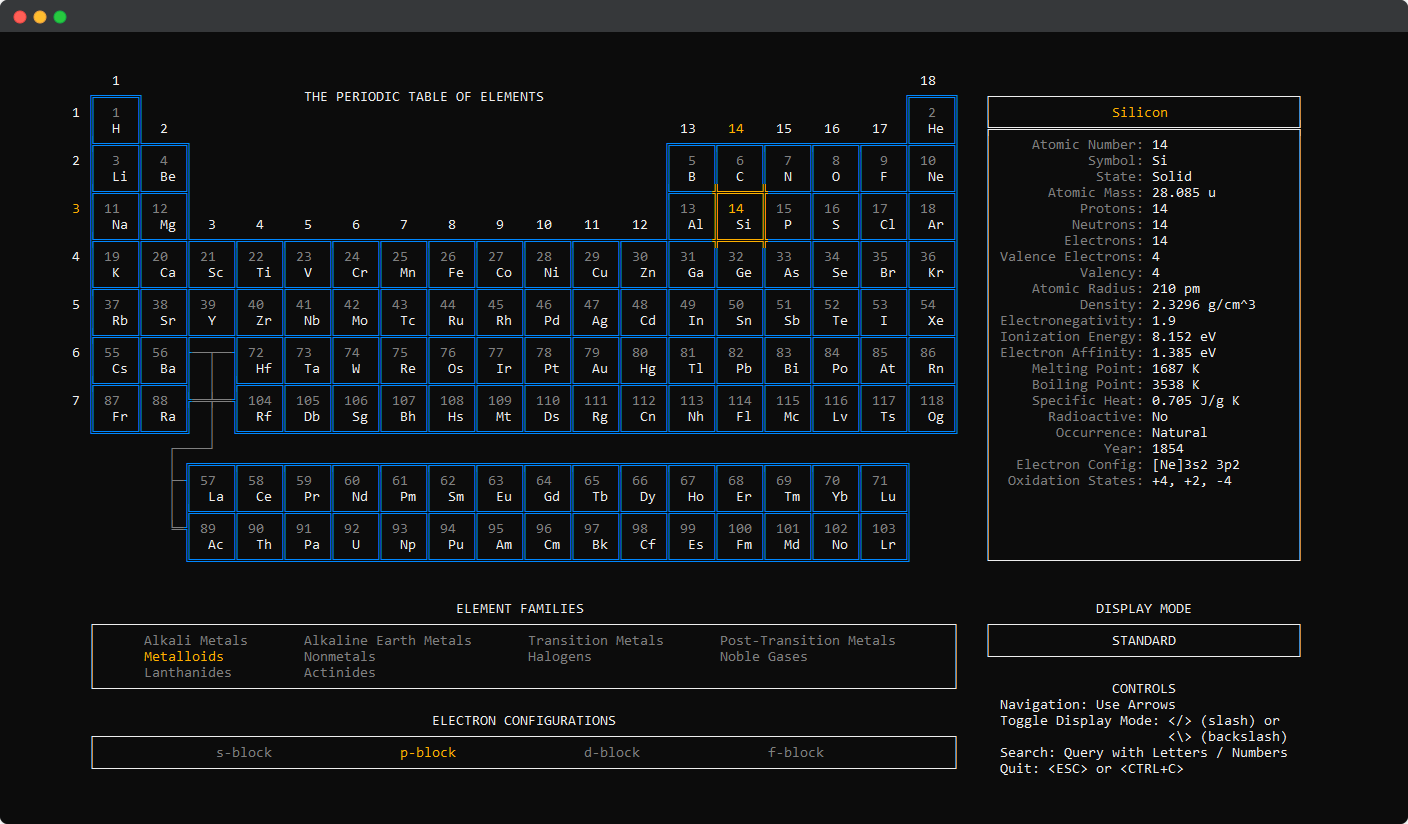
Move the cursor directly below the Periodic Table to browse all 10 element families. The elements in that family will be focused on the Periodic Table, and a description of that family will appear on the right.
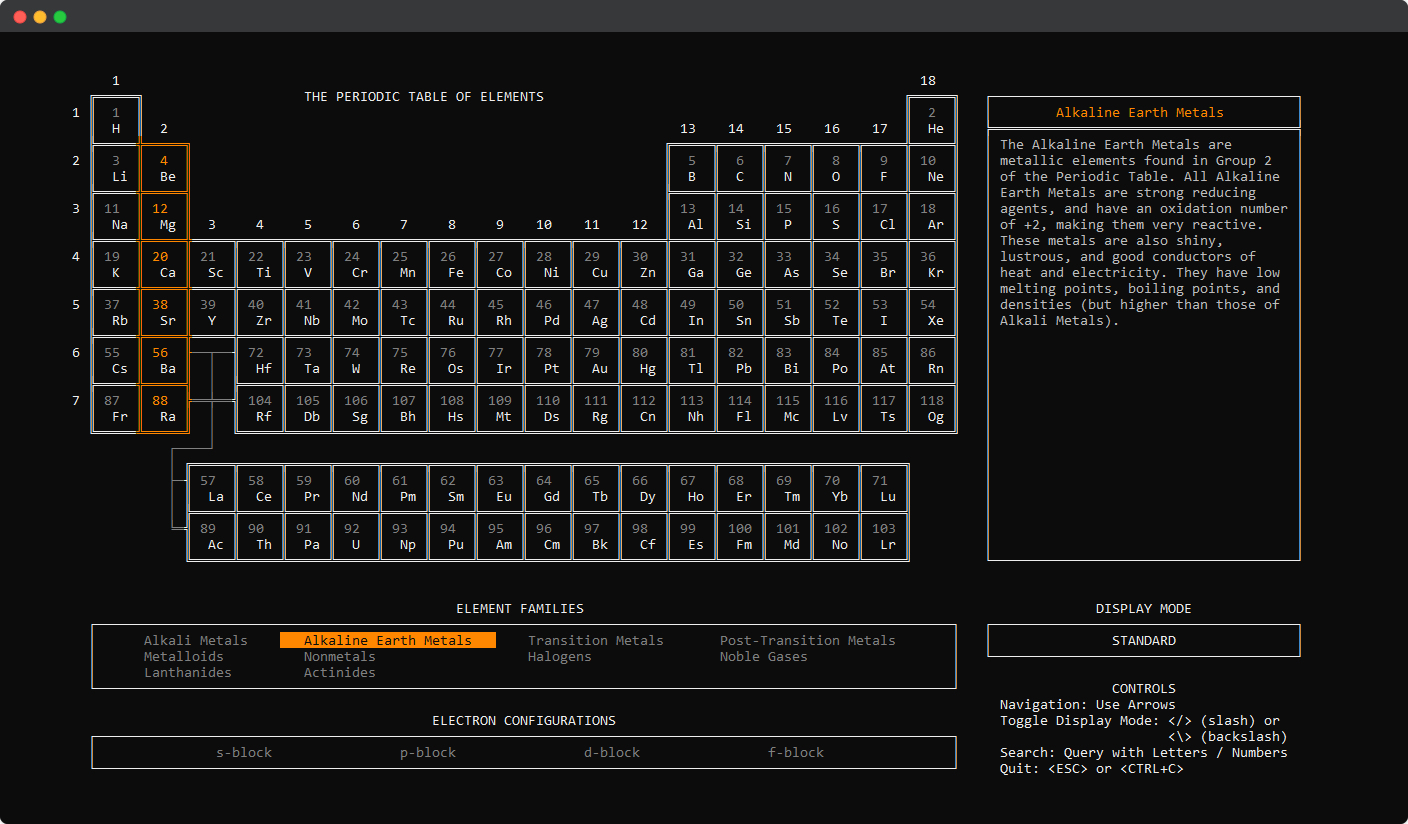
Move the cursor below the element families to browse all 4 electron configurations. The elements with that electron configuration will be focused on the Periodic Table, and a description of that electron shell will appear on the right.
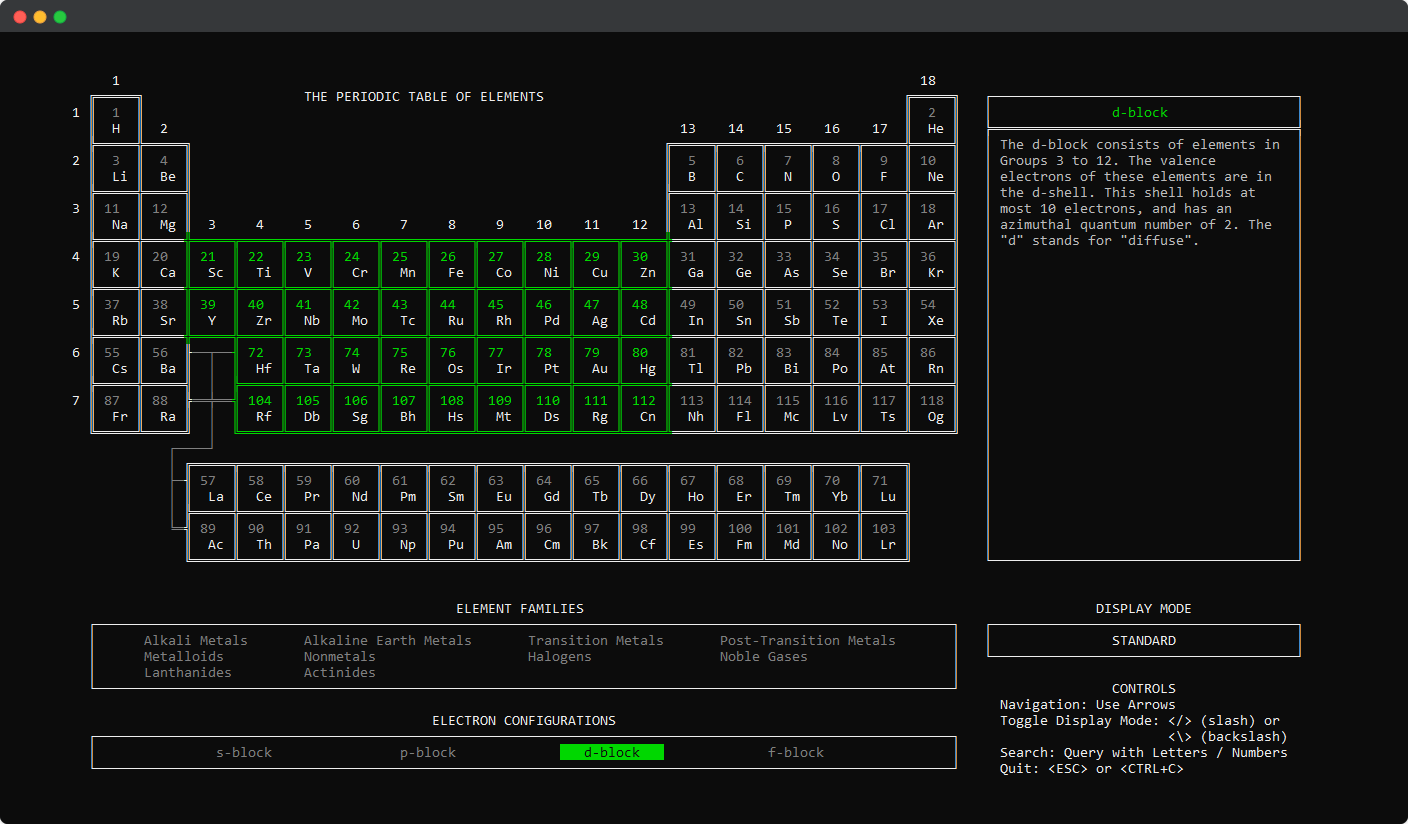
Use letters or numbers to query for an element, family, or electron configuration. Queries are matched on element names, symbols, and atomic numbers, along with family names and electron configuration names. Just start typing to enter search mode. Press the Enter to select a search item, or the Left arrow to exit search mode.
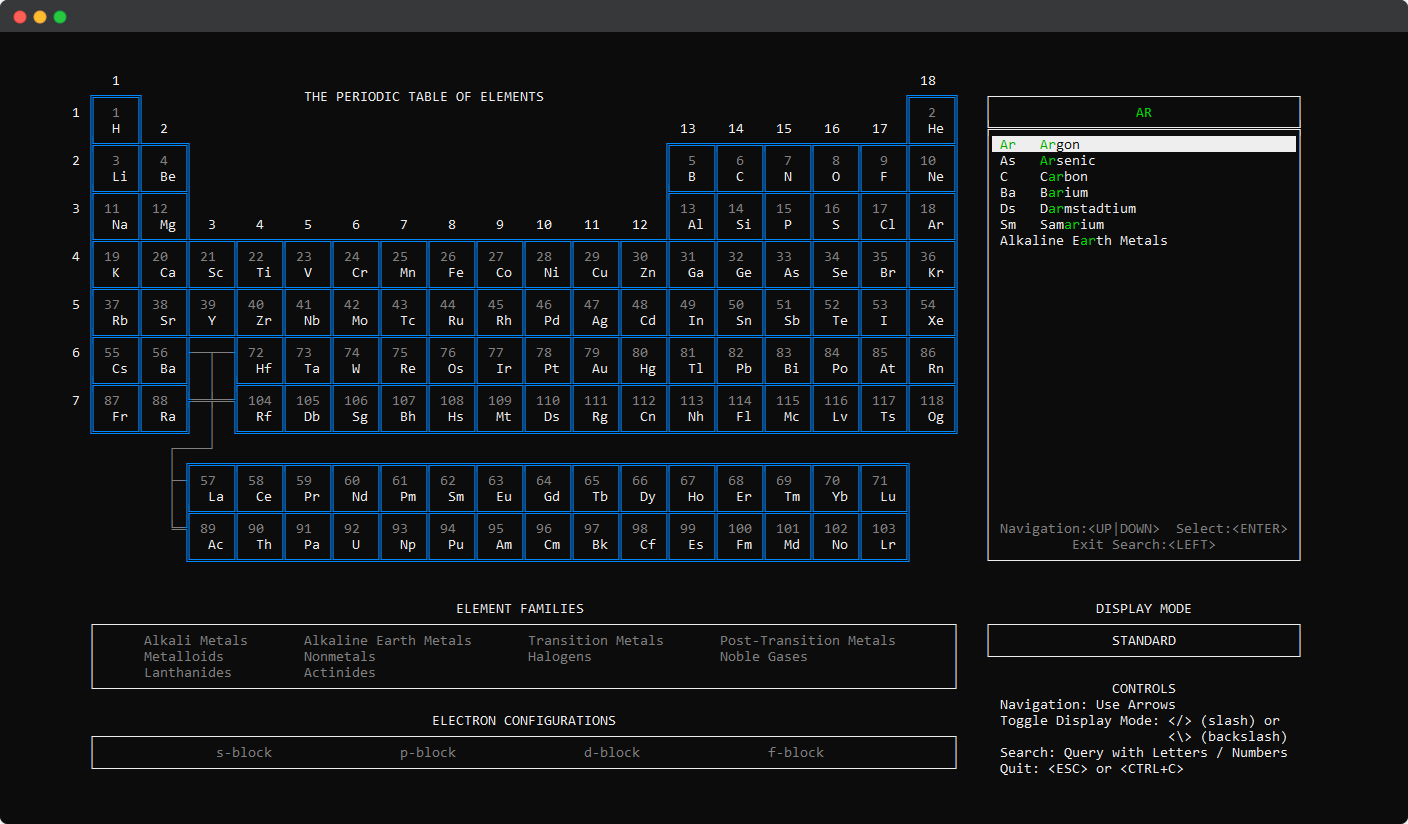
Use the SLASH </> key to toggle different display modes. Use BACKSLASH <\> to toggle in reverse. The following 20 display modes are supported:
Display 10 color-coded element families:
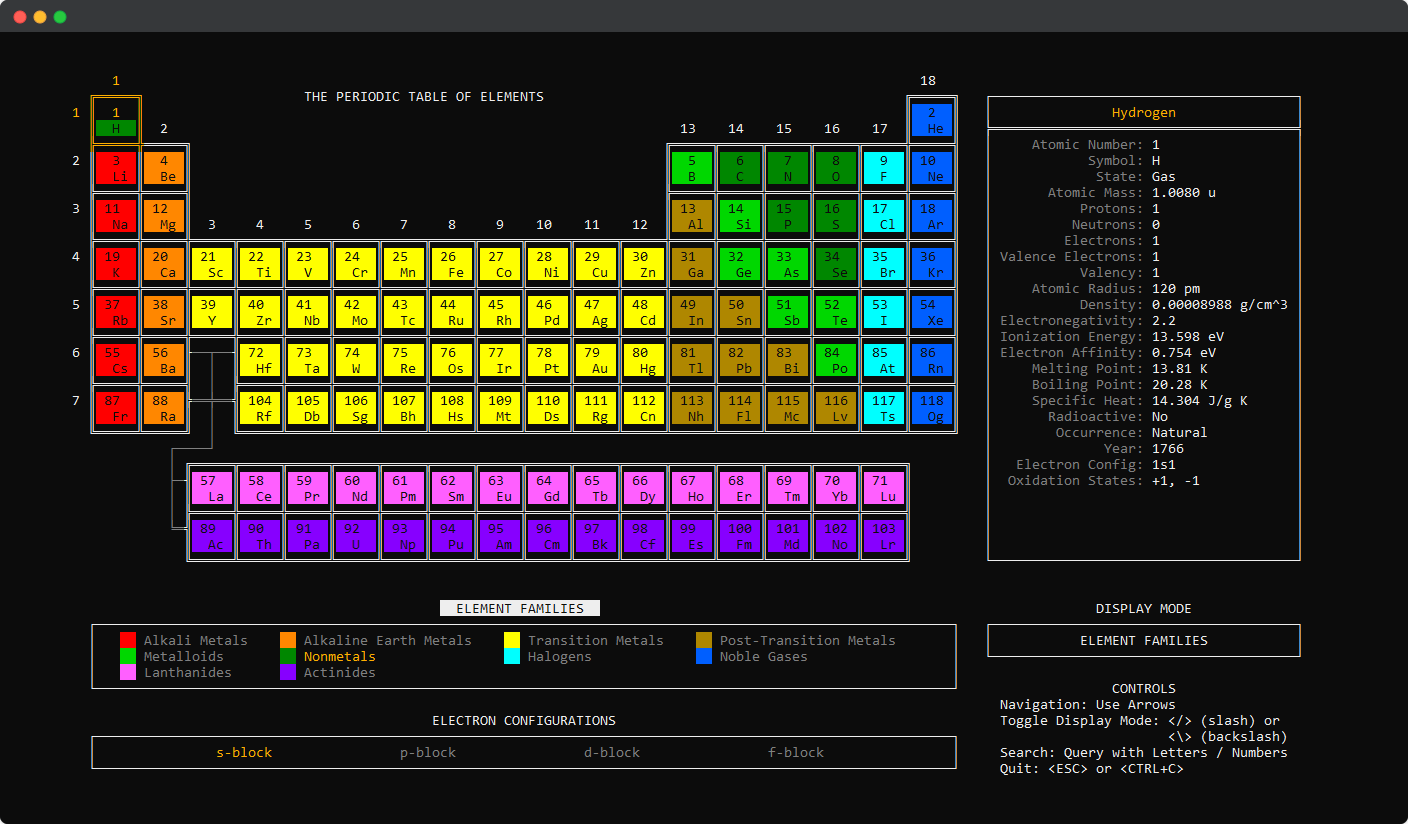
Display 4 color-coded electron shells:
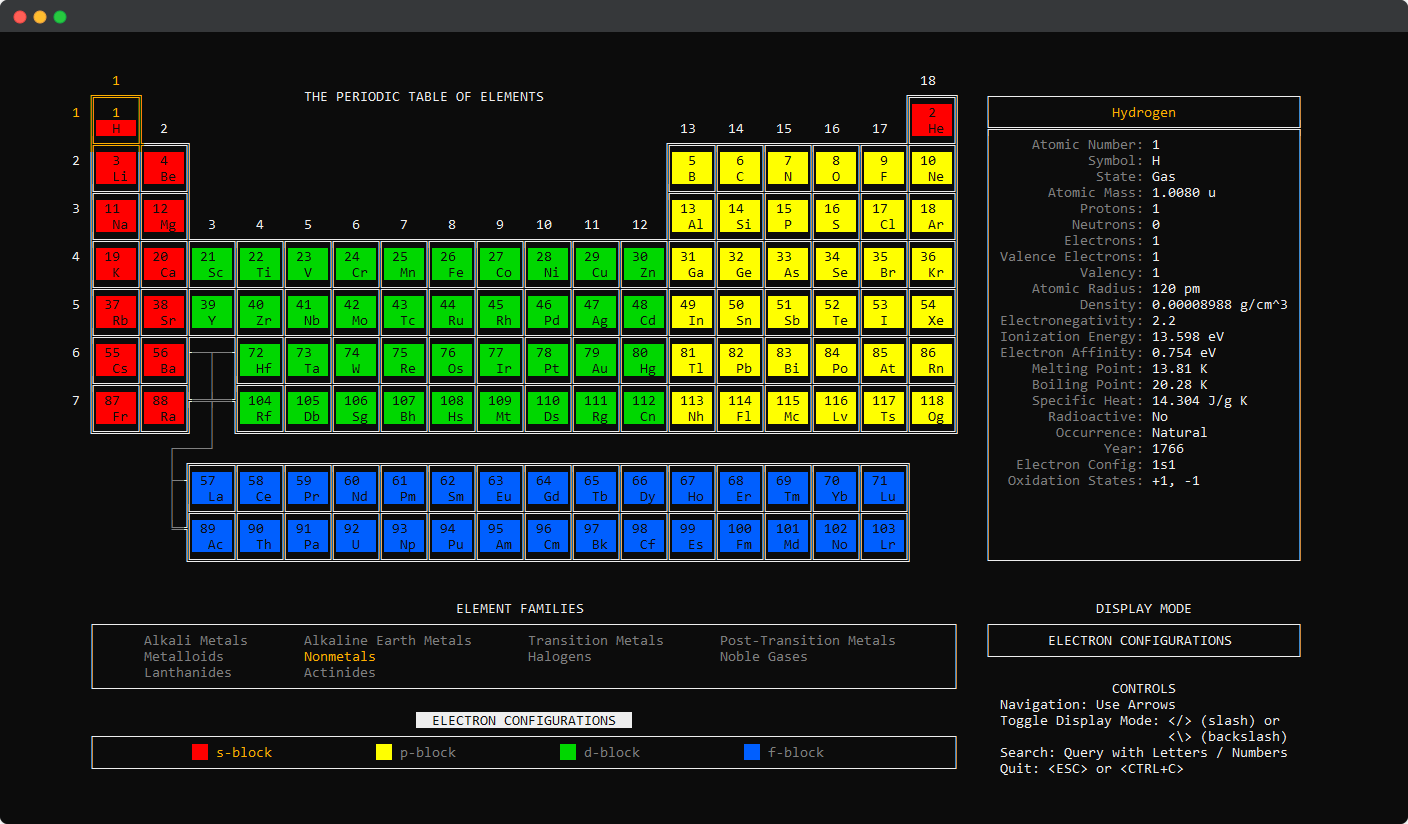
Display whether an element is a solid (white), liquid (red), or gas (blue). Expected states appear as a darker color (gray is expected solid, dark blue is expected gas):
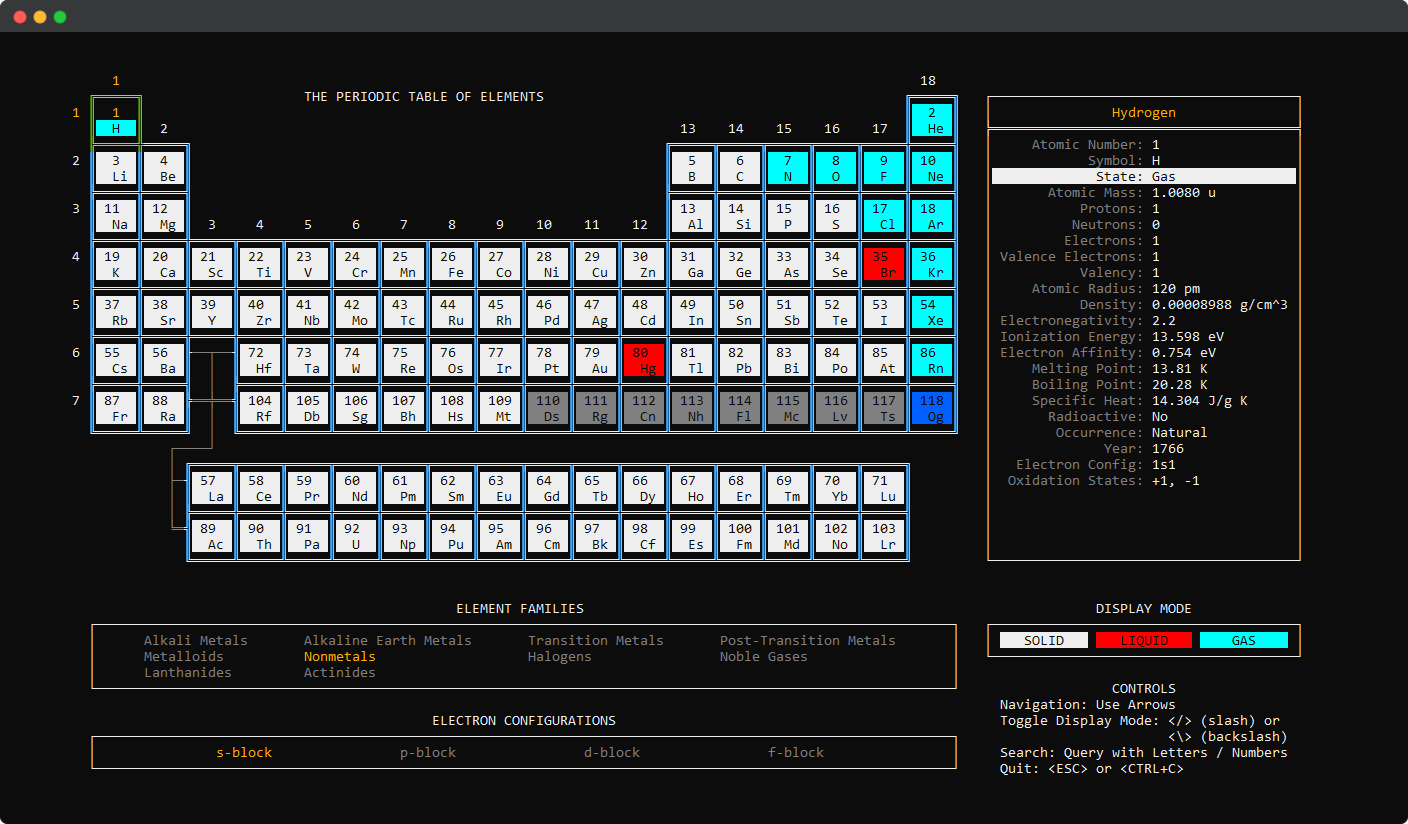
Display a heat-map of atomic mass (increasing from blue to red):
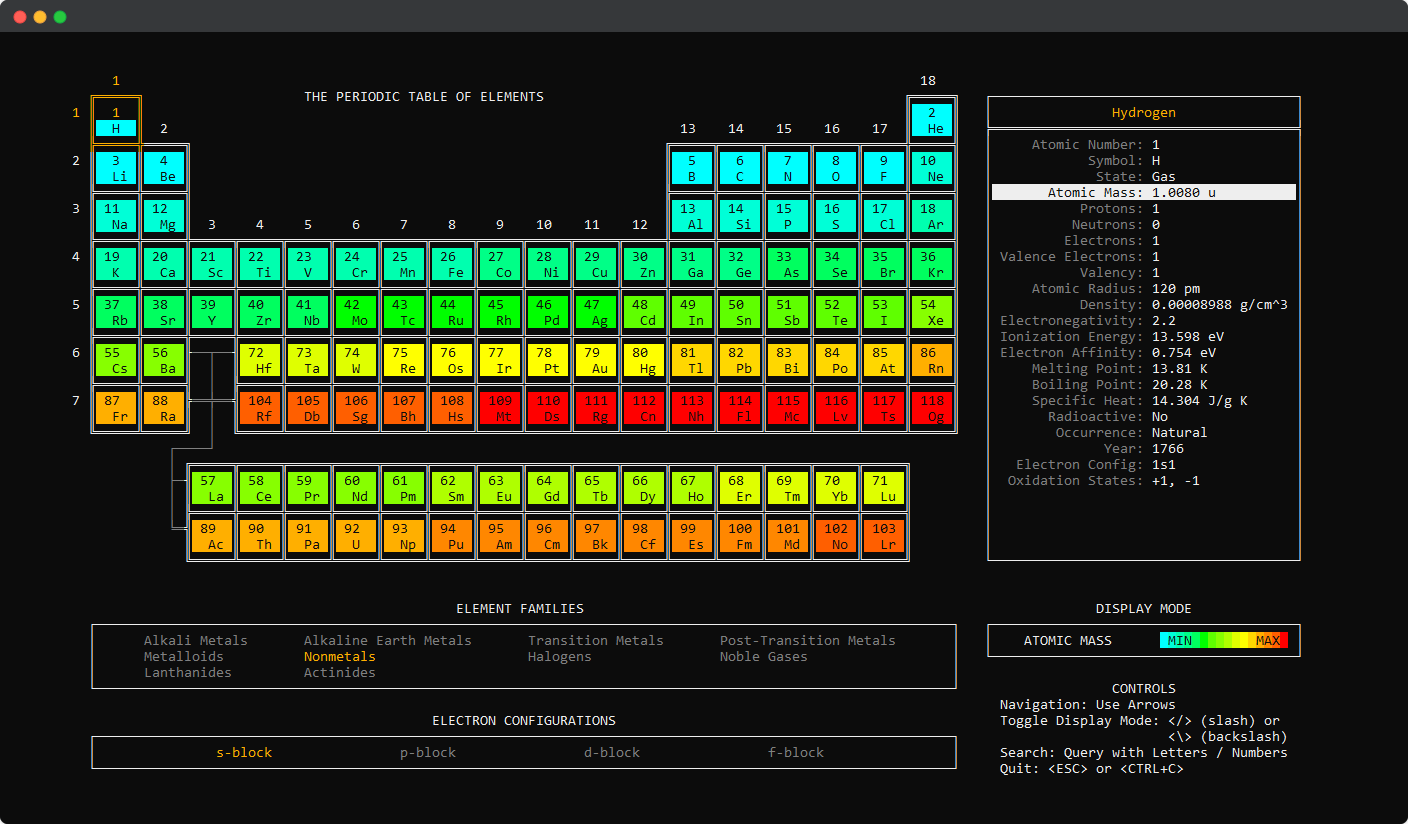
Display a heat-map of the number of protons (increasing from blue to red):
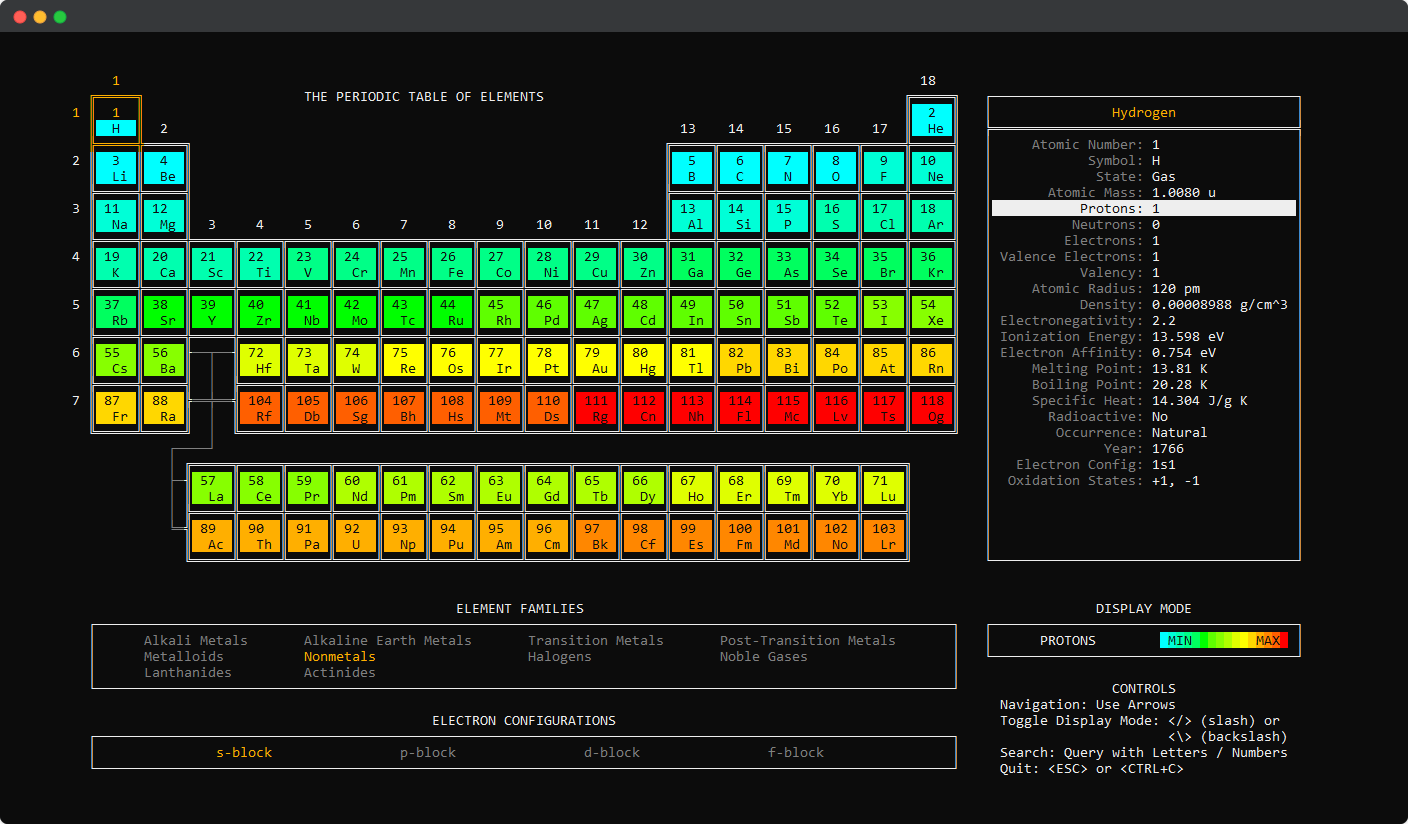
Display a heat-map of the number of neutrons (increasing from blue to red):
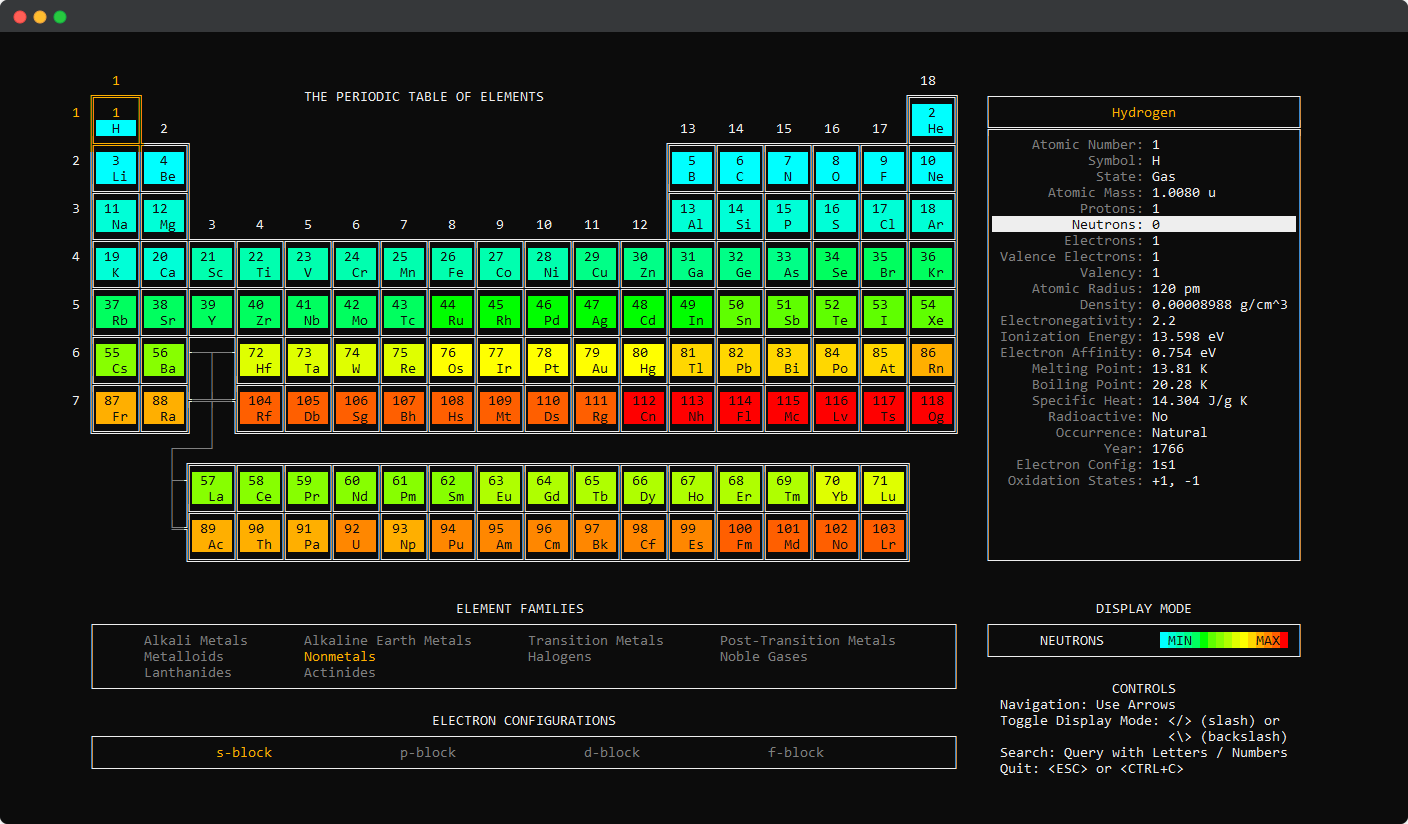
Display a heat-map of the number of electrons (increasing from blue to red):
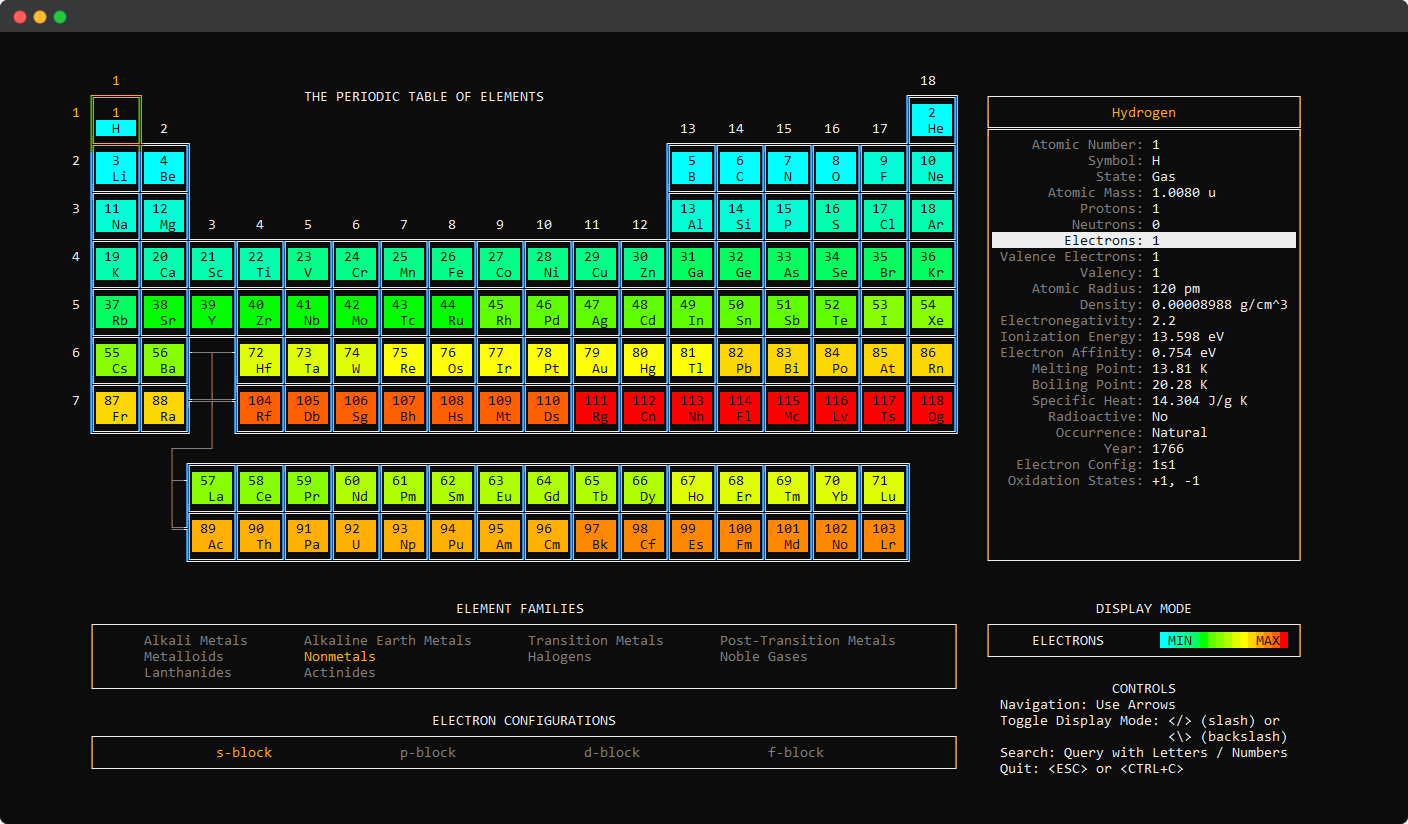
Display a color-coded representation of the number of valence electrons:
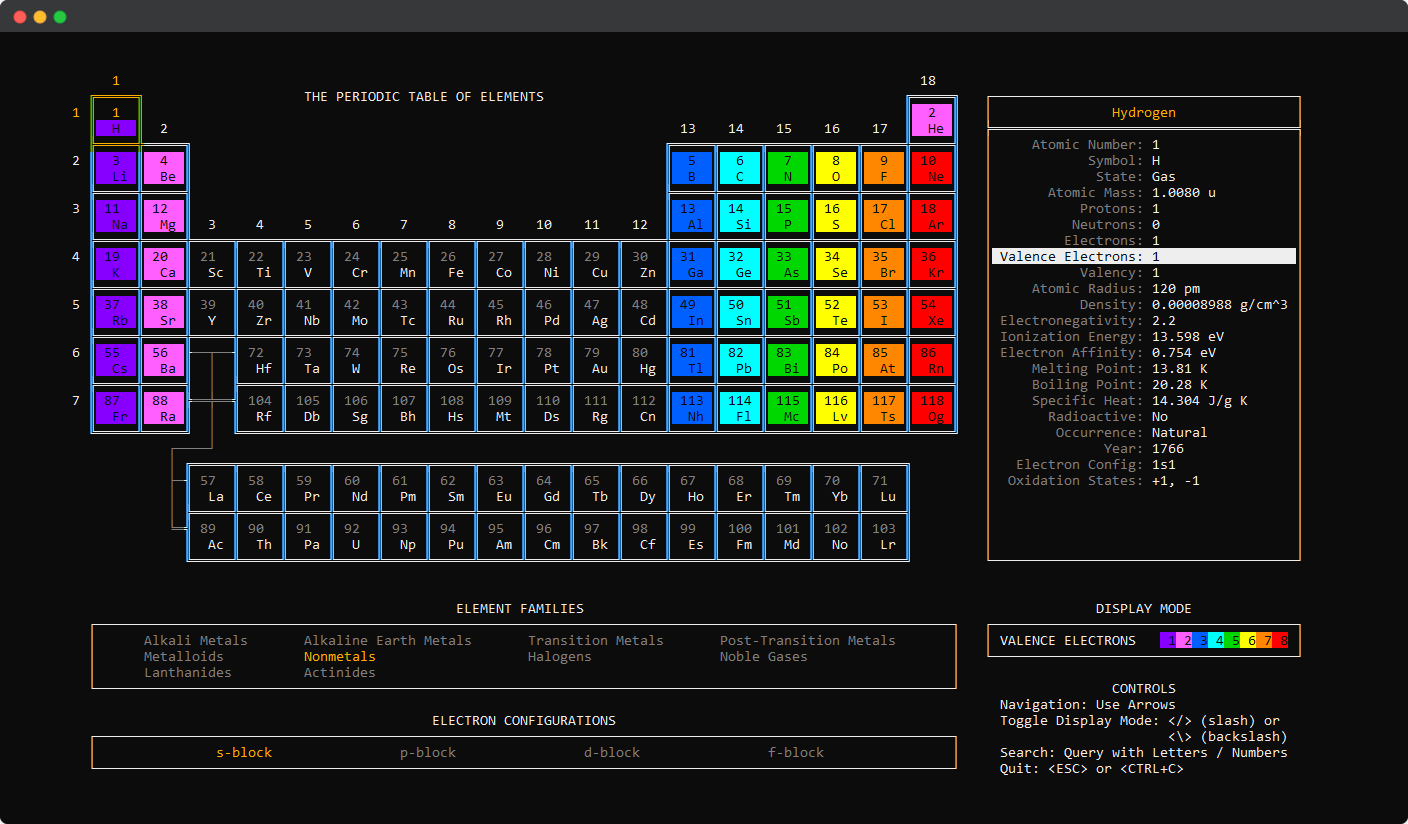
Display a color-coded representation of valency:
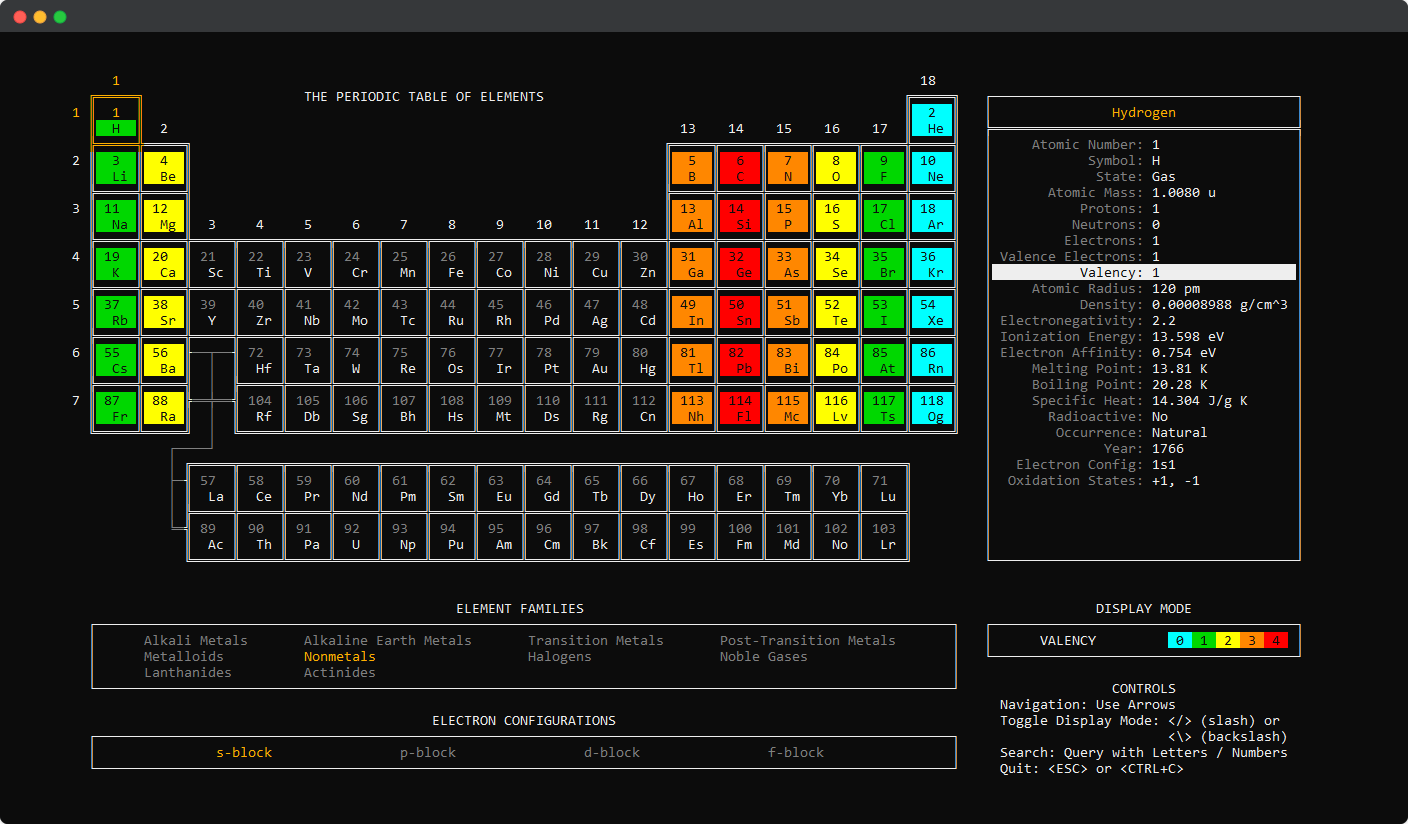
Display a heat-map of atomic radius (increasing from blue to red):
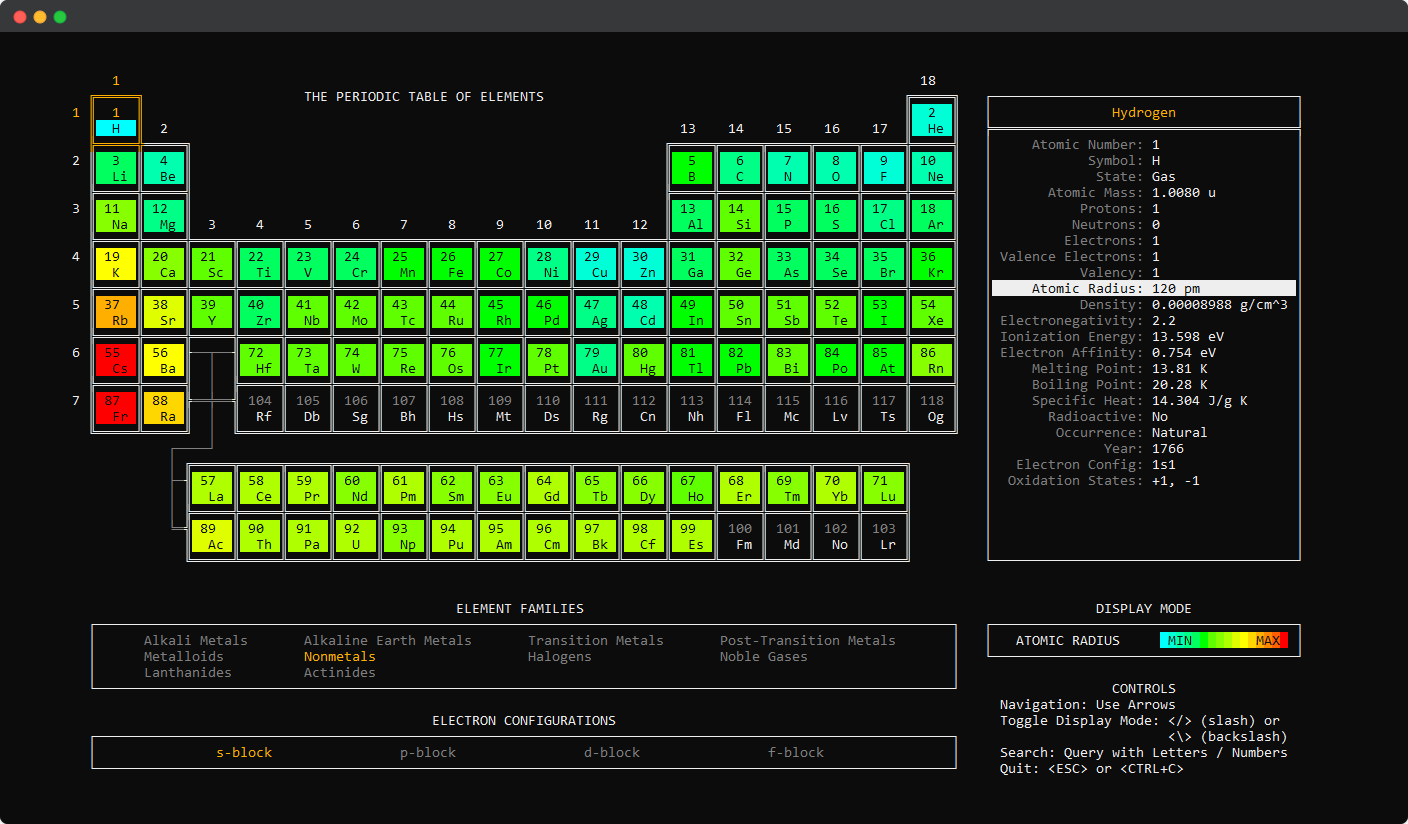
Display a heat-map of density (increasing from blue to red):
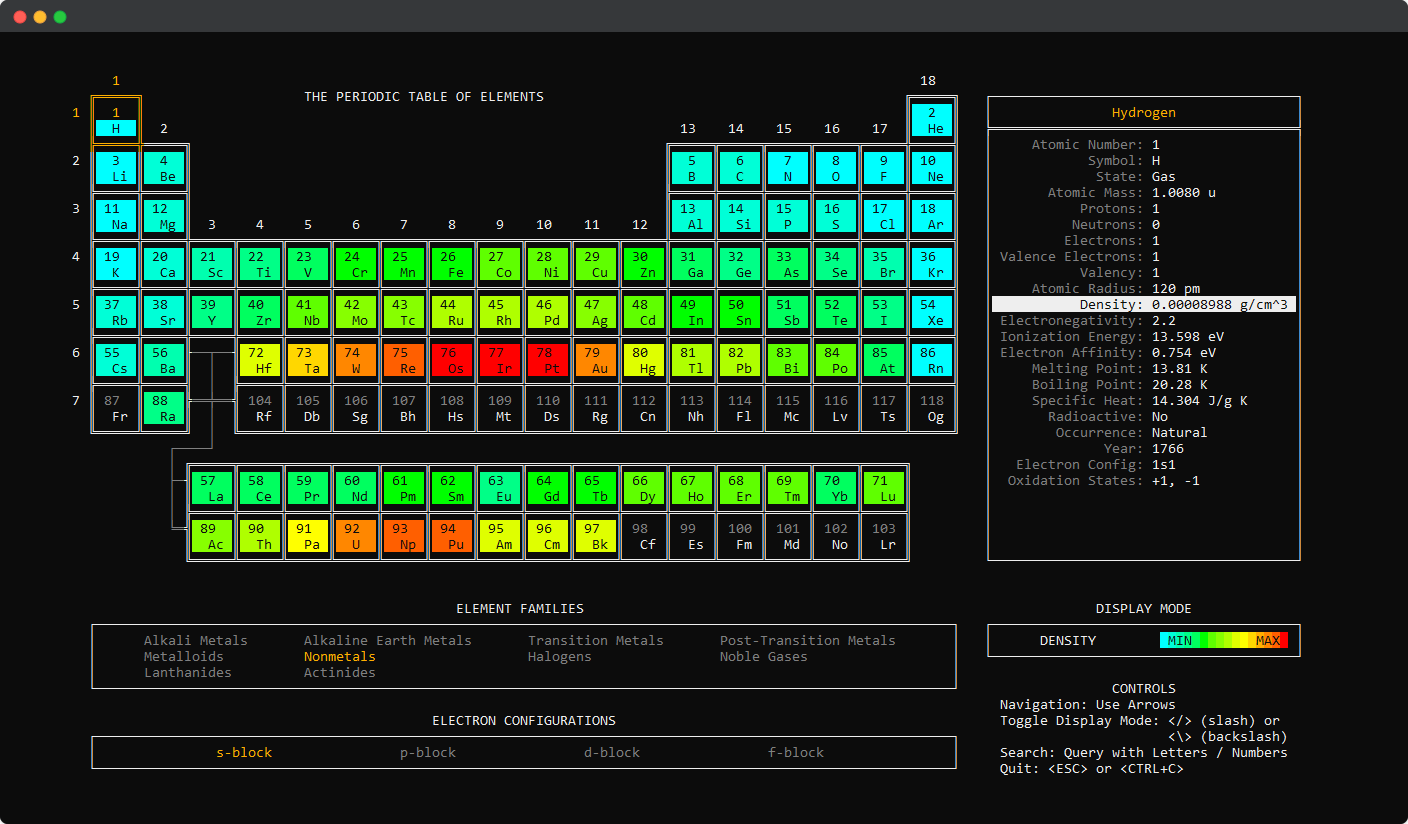
Display a heat-map of electronegativity (increasing from blue to red):
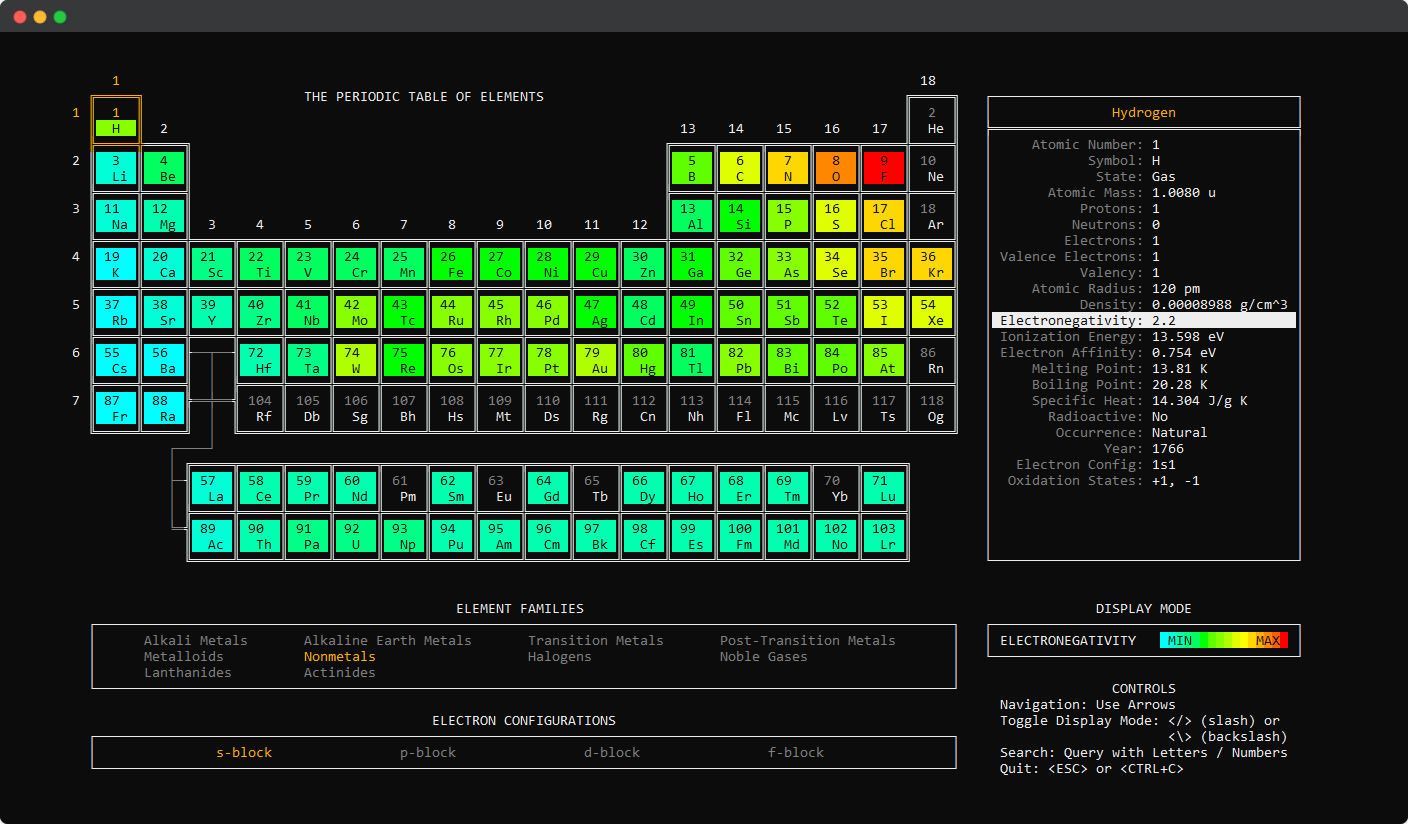
Display a heat-map of ionization energy (increasing from blue to red):
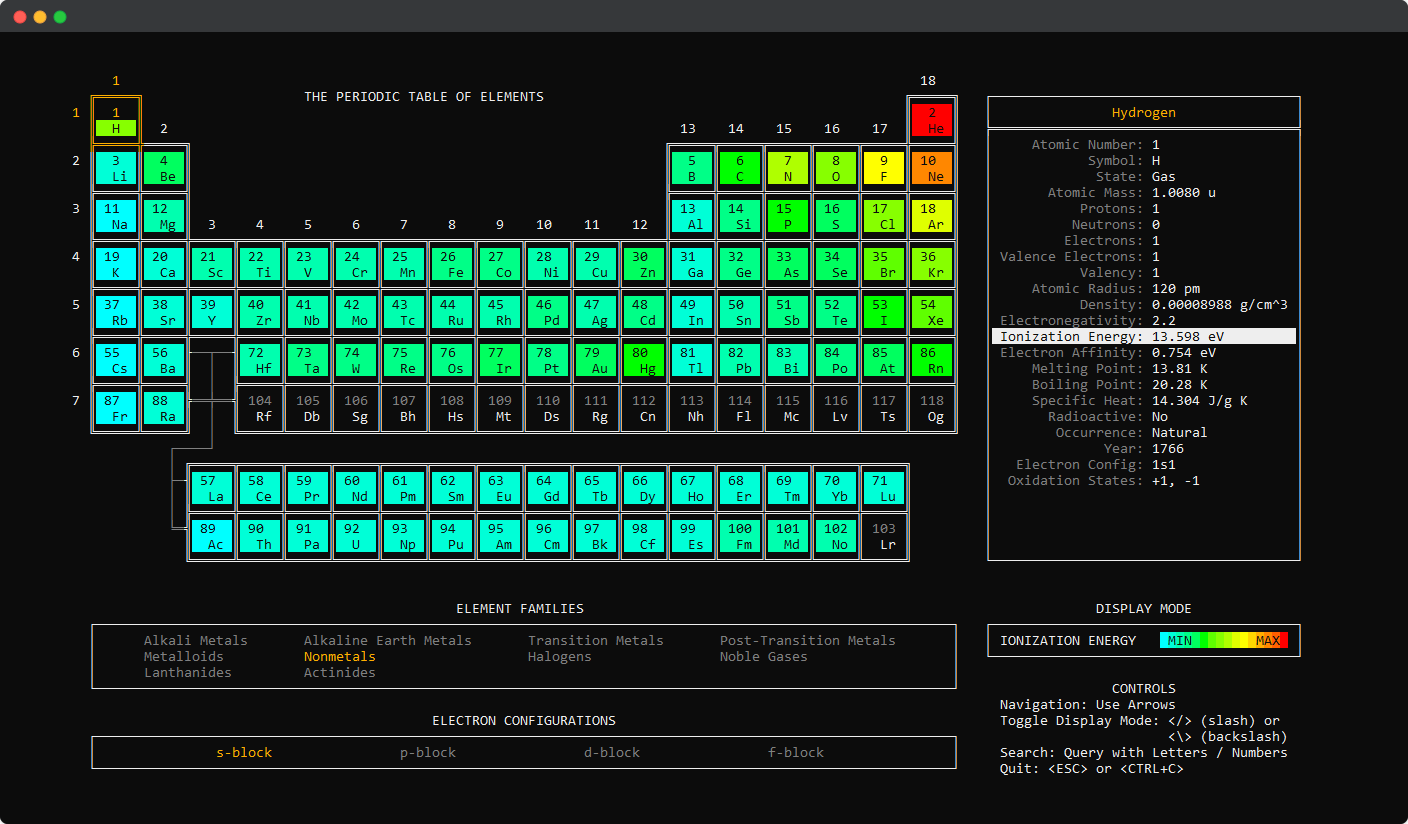
Display a heat-map of electron affinity (increasing from blue to red):
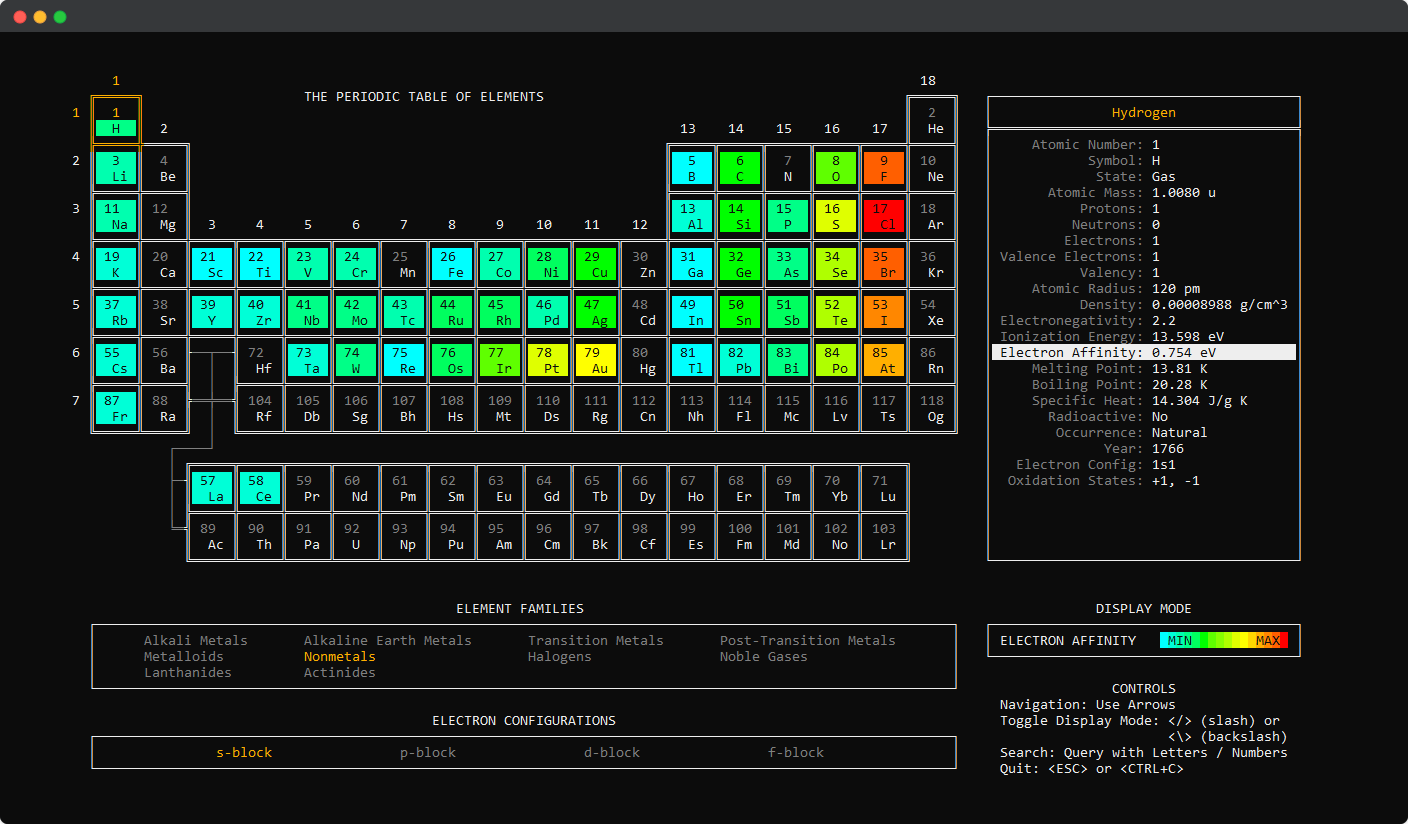
Display a heat-map of melting point (increasing from blue to red):
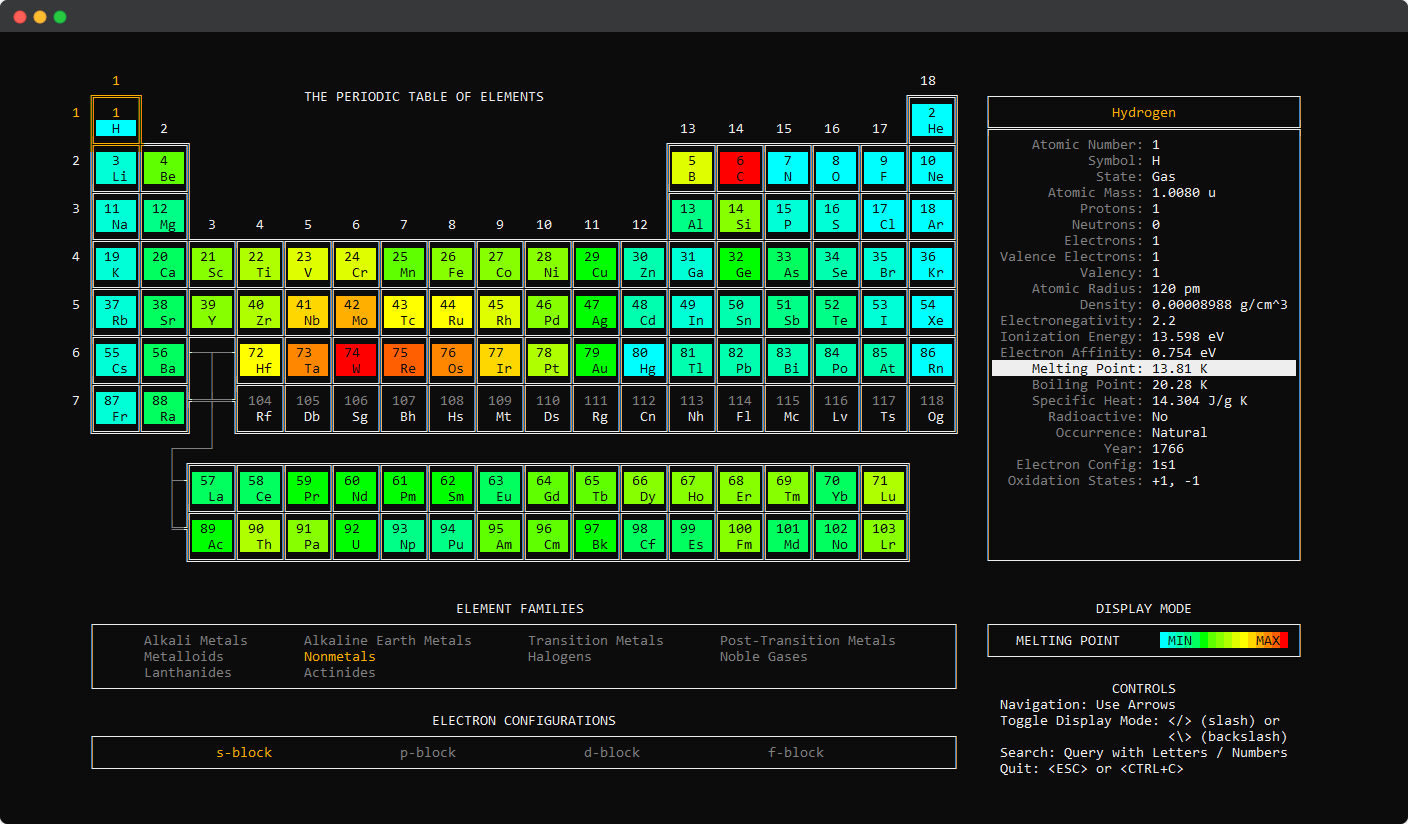
Display a heat-map of boiling point (increasing from blue to red):
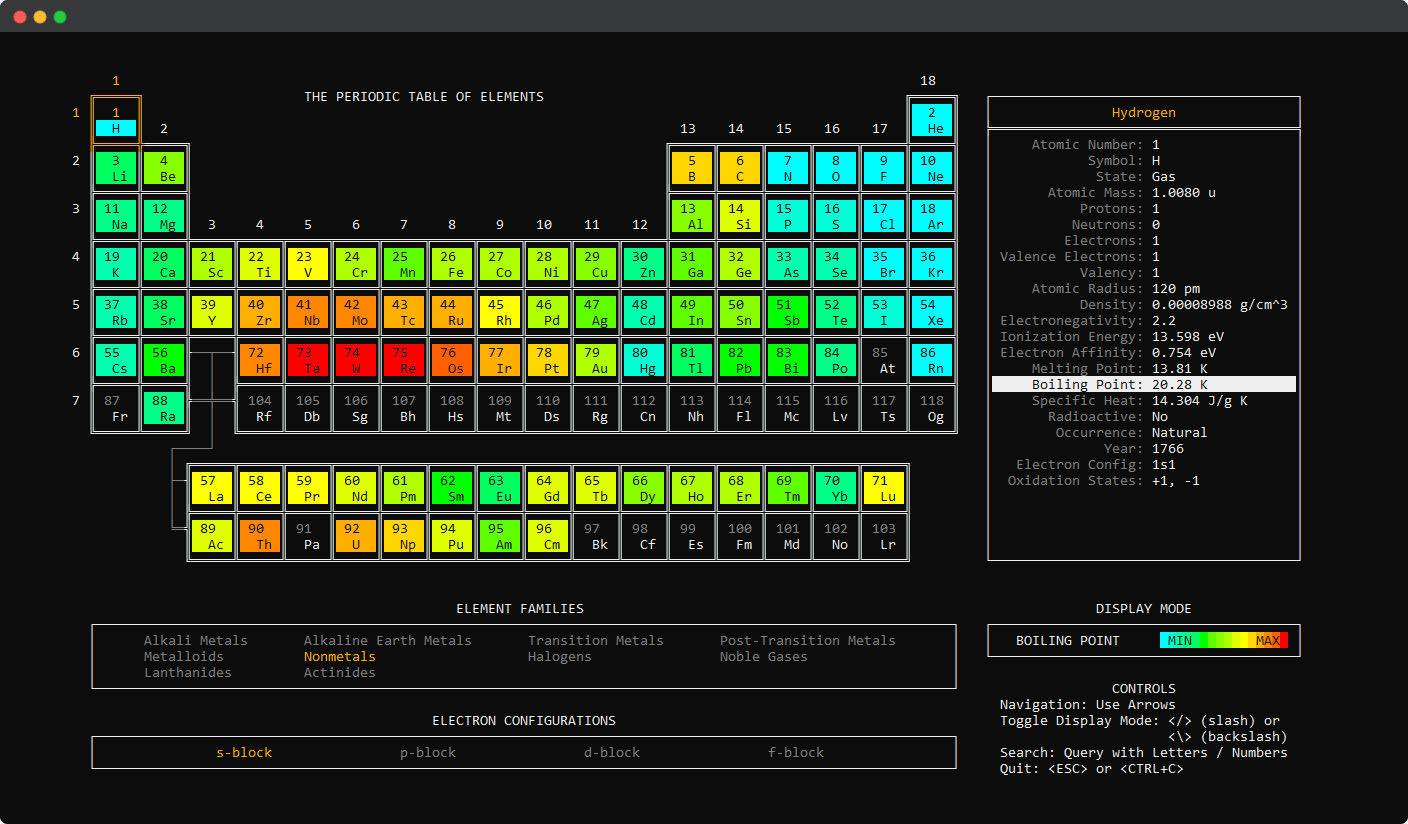
Display a heat-map of specific heat (increasing from blue to red):
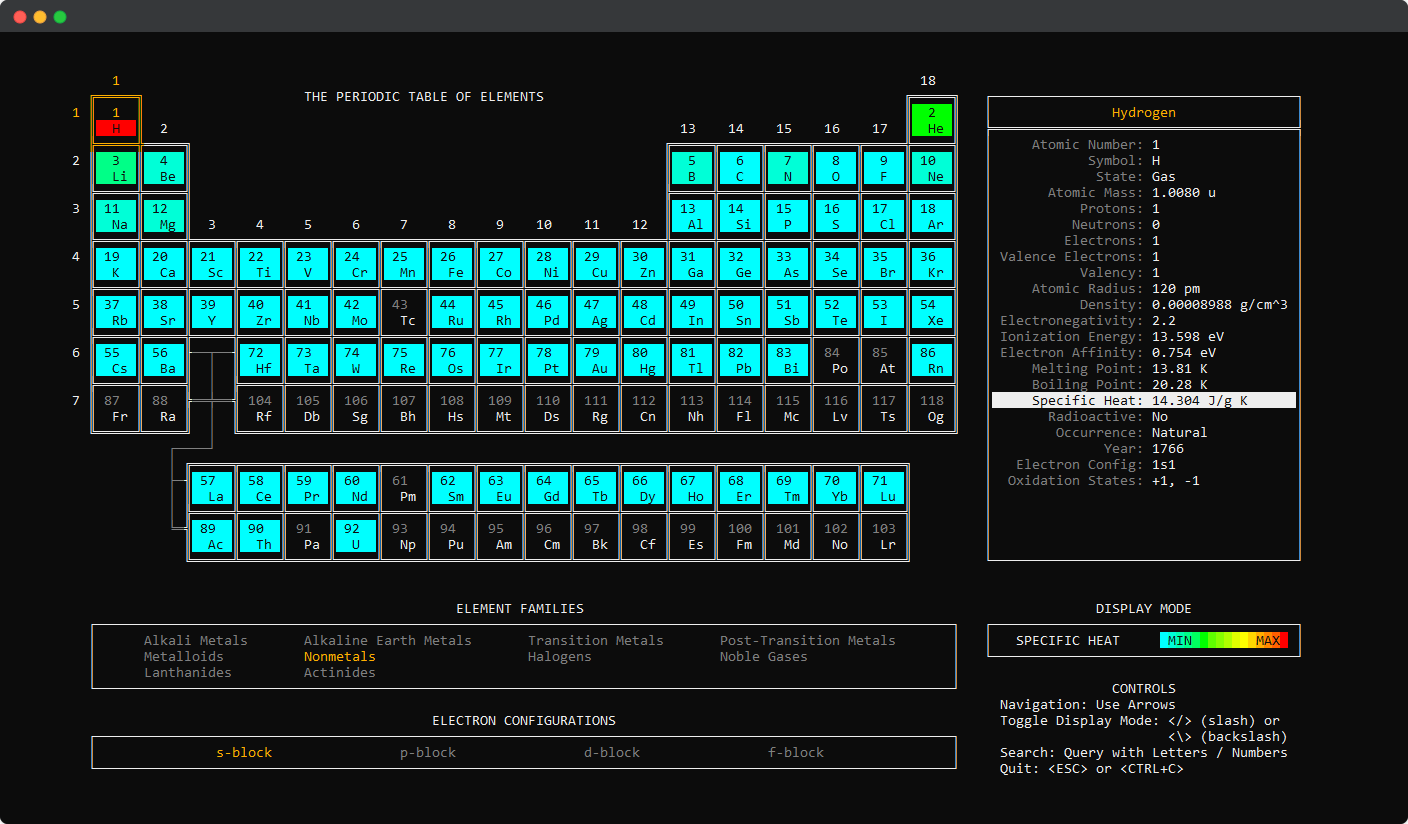
Display which elements are radioactive (red) and stable (green):
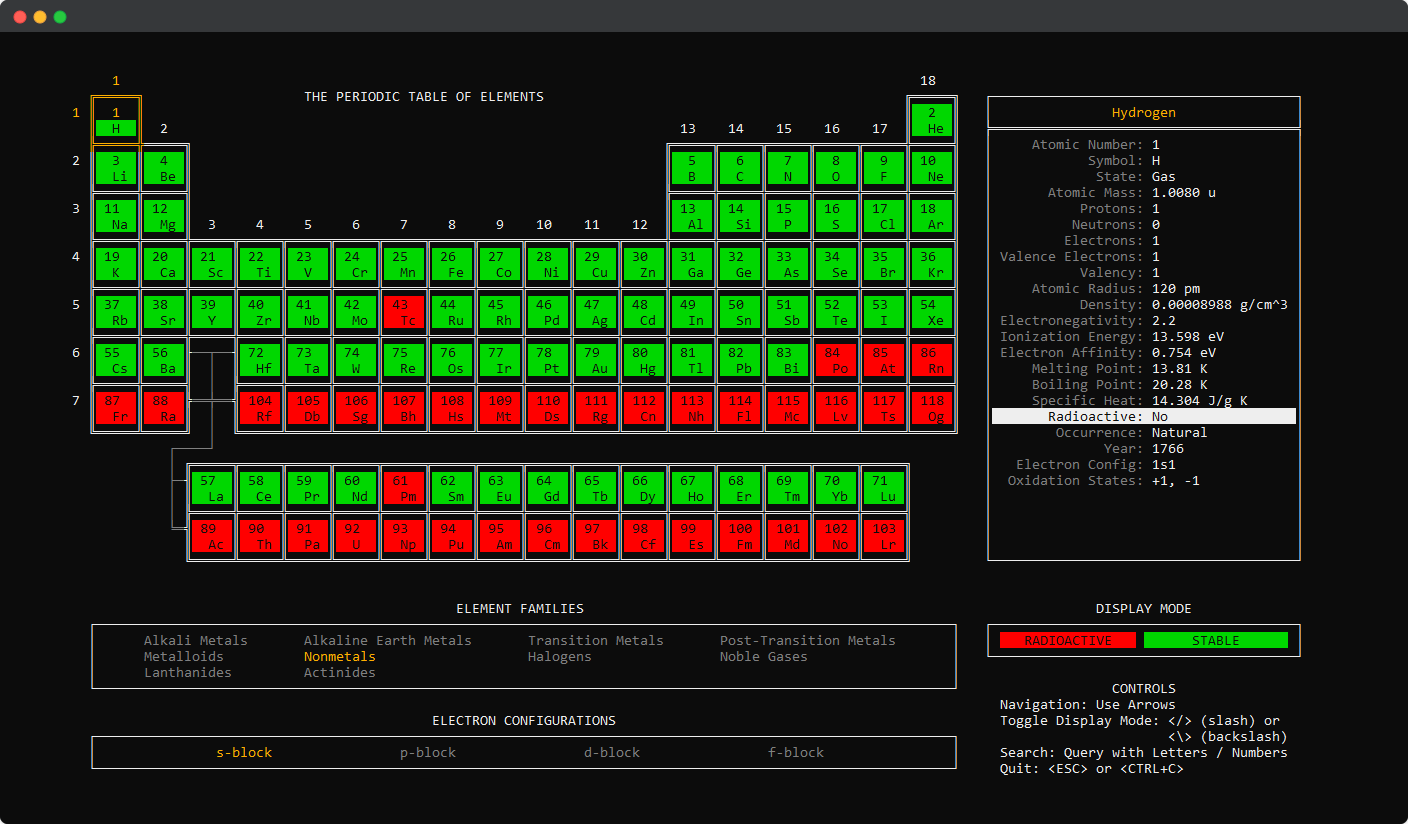
Display which elements have a natural occurrence (blue), rare occurrence (orange), or artificial occurrence (yellow):
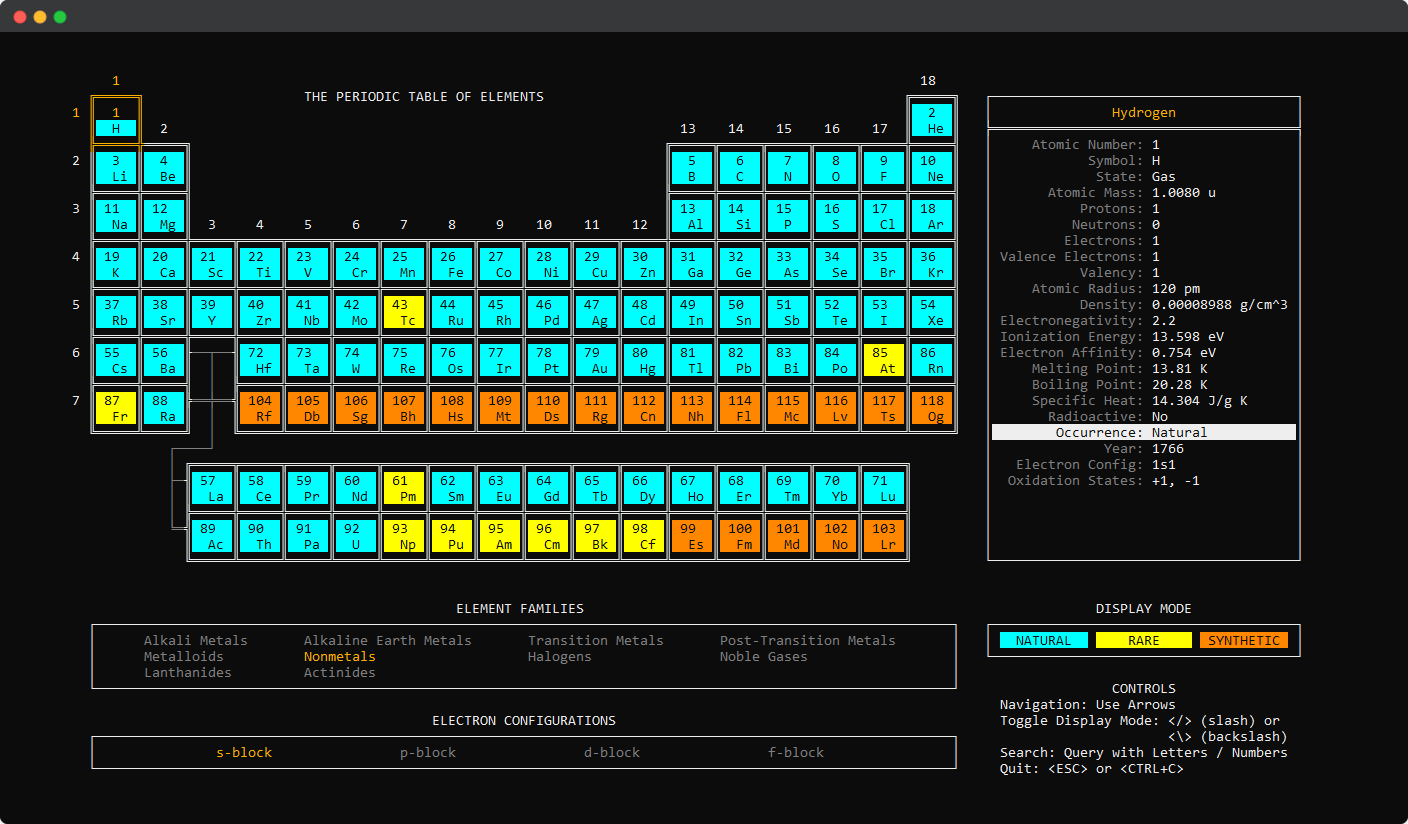
Display a heat-map of the year each element was discovered (increasing from blue to red). Ancient elements appear in white:
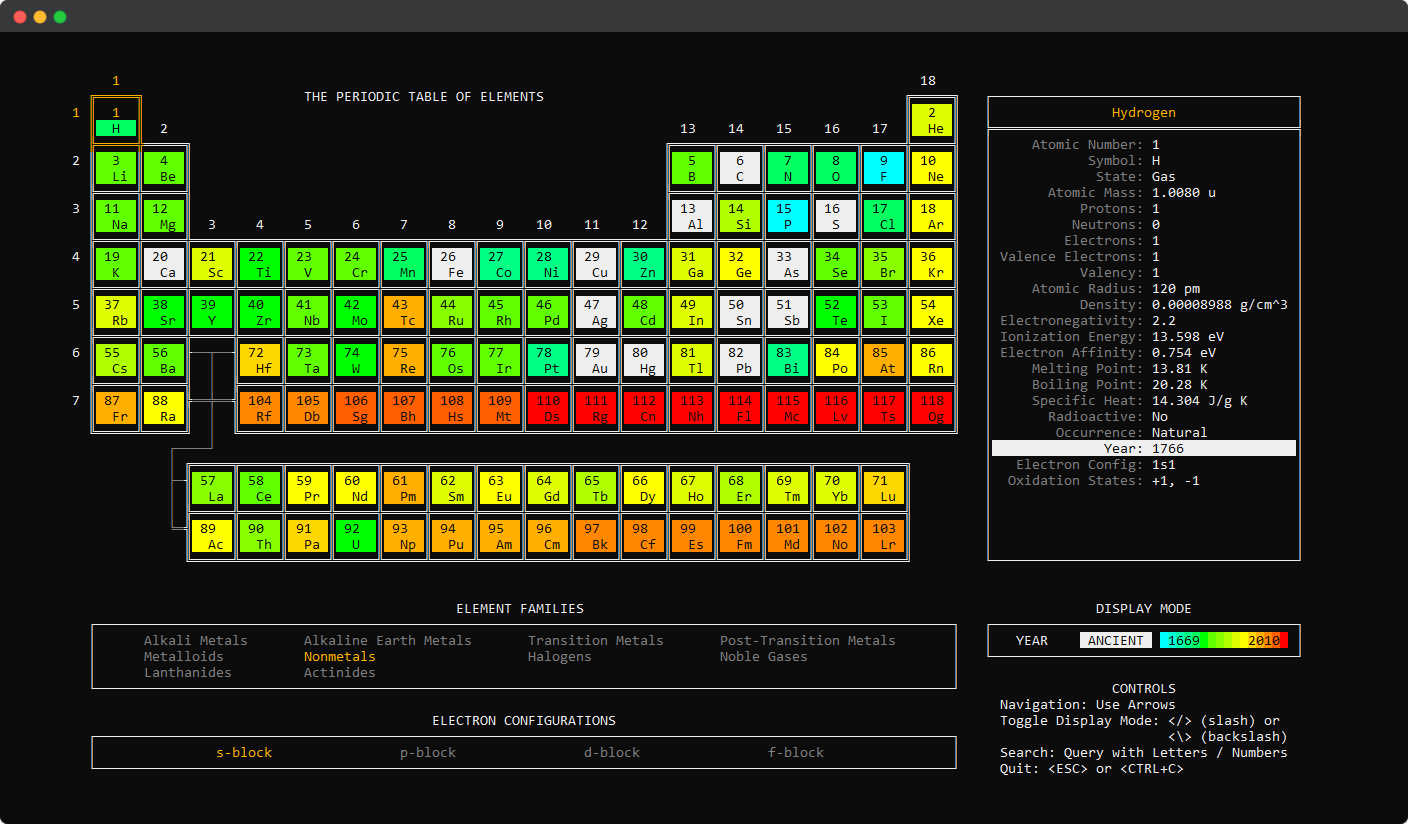
The --mode=data param displays a brief list of all the elements, including atomic number, element symbol, and element name:
> periodic-table-cli --mode=data

Add the optional --verbose flag (or shorthand -v) to display a detailed list of all elements with up to 27 data columns (limited by screen size):
> periodic-table-cli --mode=data --verbose
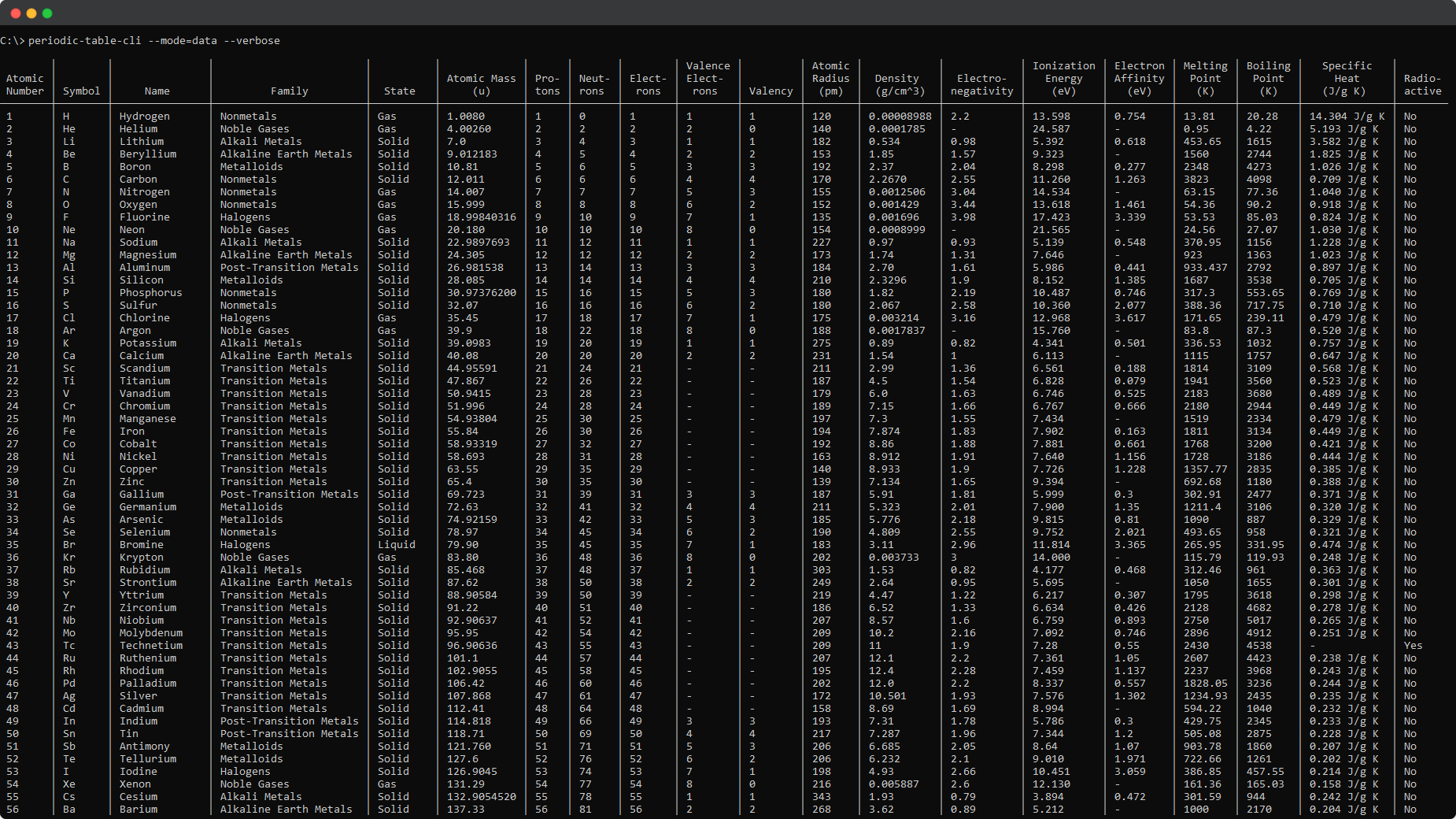
Specify an element to view data for that element. Elements can be specified using the --atomic-number=<number>, --symbol=<symbol>, or --name=<name> params:
> periodic-table-cli --mode=data --atomic-number=<number>
> periodic-table-cli --mode=data --symbol=<symbol>
> periodic-table-cli --mode=data --name=<name>
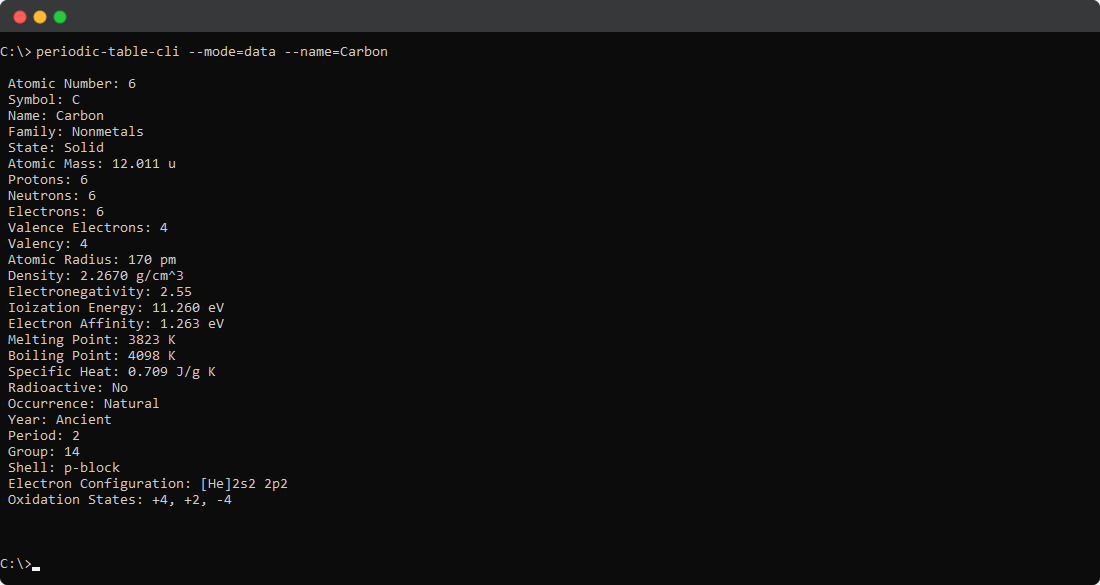
The --mode=chart param prints a non-interactive Periodic Table of Elements:
> periodic-table-cli --mode=chart

Minimum terminal width: 113 characters
Add the optional --small flag (or shorthand -s) to print a smaller non-interactive version of the Periodic Table of Elements:
> periodic-table-cli --mode=chart --small
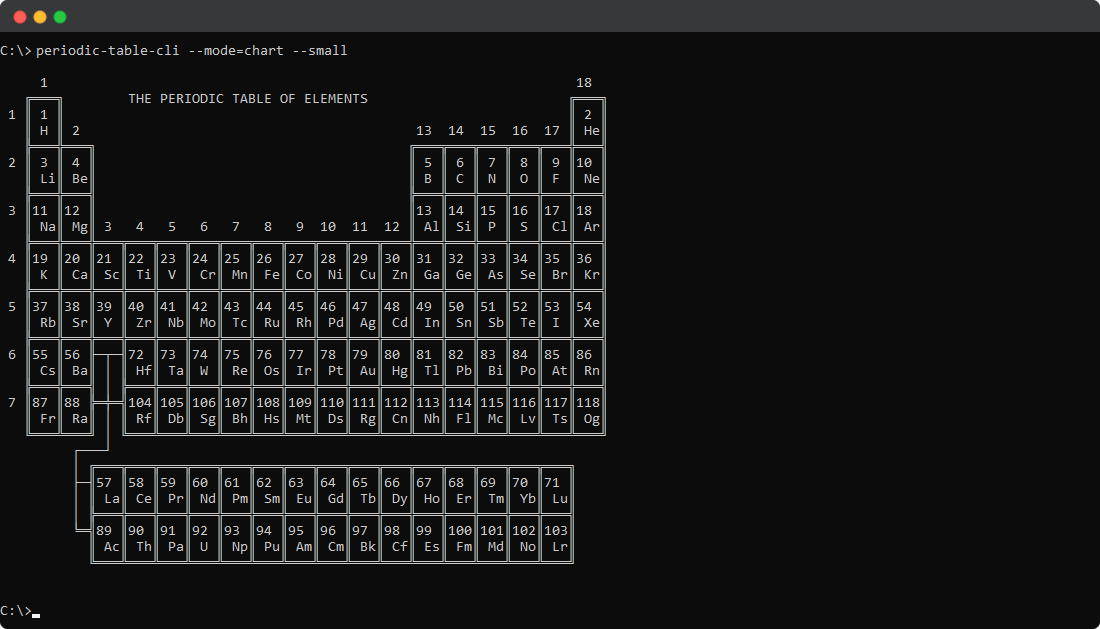
Minimum terminal width: 76 characters
Specify an element to view that element on the Periodic Table of Element. Elements can be specified using the --atomic-number=<number>, --symbol=<symbol>, or --name=<name> params:
> periodic-table-cli --mode=chart --atomic-number=<number>
> periodic-table-cli --mode=chart --symbol=<symbol>
> periodic-table-cli --mode=chart --name=<name>
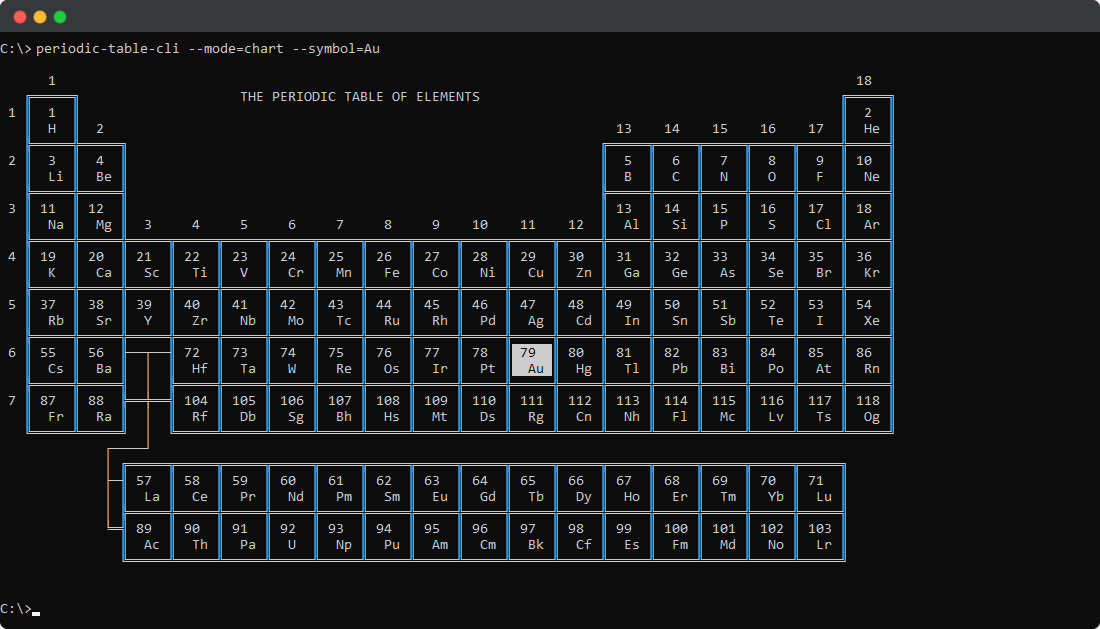
The --mode=app param runs the app in interactive mode (default).
> periodic-table-cli --mode=app
Specify an element to launch the app on that element. Elements can be specified using the --atomic-number=<number>, --symbol=<symbol>, or --name=<name> params:
> periodic-table-cli --mode=app --atomic-number=<number>
> periodic-table-cli --mode=app --symbol=<symbol>
> periodic-table-cli --mode=app --name=<name>
The minimum required terminal screen dimensions are 156 columns x 46 rows. When using a smaller screen, some components may be cut off. To fix this, either make the screen bigger or use scrolling to pan across the screen:
(,) to scroll up.(.) to scroll down.(<) to scroll left.(>) to scroll right.Data used in the app is stored in an easy to edit data file for NodeJS and Python. The data is mostly imported from PubChem.
Last updated August 2025